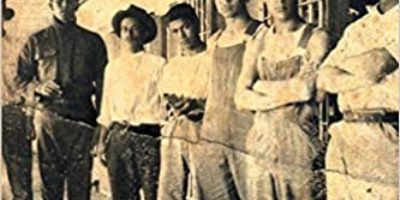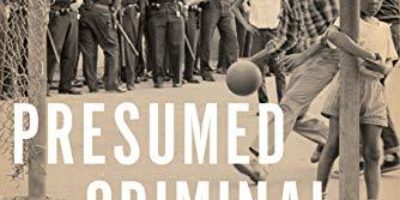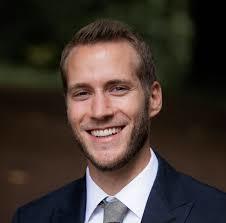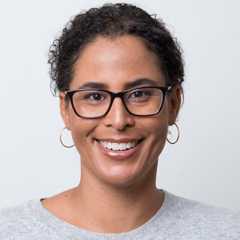Dec 03
Resisting Carceral Cities: Prisons, Police, and Punishment in Historical Perspective



Description
As rebellions rock cities across the country in response to police killings and violence, we look at the long history of the criminalization of Black men and women and the growing call for the abolition of prisons and police.
Speakers
-

Garrett Felber
University of Mississippi
Garrett Felber’s research and teaching focus on twentieth-century African American social movements, Black radicalism, and the carceral state. Felber is the author of Those Who Know Don’t Say: The Nation of Islam, the Black Freedom Movement and the Carceral State and co-author of The Portable Malcolm X Reader with the late Manning Marable. Felber’s work has been published in the Journal of American History, Journal of African American History, Journal of Social History, and Souls.
Felber was the lead organizer of the Making and Unmaking Mass Incarceration conference and is the Project Director of the Parchman Oral History Project, a collaborative oral history, archival, and documentary storytelling project on incarceration in Mississippi. In 2016, Felber co-founded Liberation Literacy, an abolitionist collective inside and outside Oregon prisons. He spearheaded the Prison Abolition Syllabus, a reading list published by Black Perspectives which highlighted and contextualized the prison strikes of 2016 and 2018.
In 2020, he helped launch Mississippi Freedom Winter, a partnership between a national network of university faculty, students, and grassroots organizers to address the pressing humanitarian crises of incarceration and immigrant detention in Mississippi. As the first phase of Freedom Winter, Felber co-organized the Study and Struggle program, a four-month international bilingual political education program on abolition and immigrant justice.
Dr. Felber is working on two book projects: We Are All Political Prisoners: The Revolutionary Life of Martin Sostre and The Norfolk Plan: The Community Prison in the Age of Mass Incarceration. He is also co-editing a special issue of Southern Cultures journal on prison abolition in the South.
-

Kelly Lytle Hernandez
University of California, Los Angeles
Kelly Lytle Hernandez is a professor of History, African American Studies, and Urban Planning at UCLA where she holds The Thomas E. Lifka Endowed Chair in History. She is also the Director of the Ralph J. Bunche Center for African American Studies at UCLA. One of the nation’s leading experts on race, immigration, and mass incarceration, she is the author of the award-winning books, Migra! A History of the U.S. Border Patrol, and City of Inmates: Conquest, Rebellion, and the Rise of Human Caging in Los Angeles. City of Inmates recently won the 2018 James Rawley Prize from the Organization of American Historians, 2018 Athearn Prize from the Western Historical Association, the 2018 John Hope Franklin Book Prize from the American Studies Association, and the 2018 American Book Award.
Currently, Professor Lytle Hernandez is the Director and Principal Investigator for Million Dollar Hoods, a university-based, community-drive research project that maps the fiscal and human cost of mass incarceration in Los Angeles. The Million Dollar Hoods team won a 2018 Freedom Now! Award from the Los Angeles Community Action Network. For her leadership on the Million Dollar Hoods team, Professor Lytle Hernandez was awarded the 2018 Local Hero Award from KCET/PBS and the 2019 Catalyst Award from the South L.A. parent/student advocacy organization, CADRE. In 2019, Professor Lytle Hernandez was named a James D. and Catherine T. MacArthur Fellow for her historical and contemporary work.
-

Carl Suddler
Emory University
Carl Suddler is an African American historian whose research interests are at the intersections of youth, race, and crime. His scholarship is committed to developing better understandings of the consequences of inequity in the United States. His research and teaching interests are in twentieth-century U.S. history, African American urban history, histories of crime and punishment, the carceral state, sport history, and histories of childhood and youth.
Suddler’s first book, Presumed Criminal: Black Youth and the Justice System in Postwar New York points to a critical shift in the carceral turn between the 1930s and 1960s when state responses to juvenile delinquency increasingly criminalized black youths and tethered their lives to a justice system that became less rehabilitative and more punitive. His other works has also appeared in scholarly and popular outlets such as the Journal of American History, Journal of African American History, American Studies Journal, as well as op-eds for the Washington Post, The Conversation, and Bleacher Report.
Suddler earned his B.A. in History and Black American Studies from the University of Delaware and his Ph.D. in History from Indiana University, Bloomington. Prior to his appointment at Emory, he was an assistant professor of history at Florida Atlantic University and a postdoctoral fellow at the James Weldon Johnson Institute for the Study of Race and Difference at Emory.
Recording
Resisting Carceral Cities from SchomburgCBFS on Vimeo.